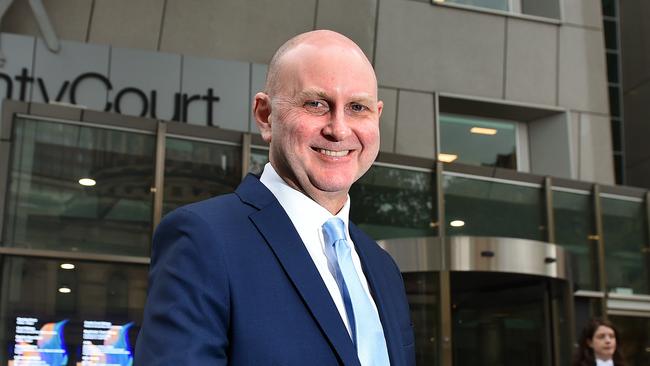‘Inherent constraints’ Victorian County Court judge on reforming trial system for sexual assault cases
Peter Kidd says fundamental legal principals limit how far the criminal system can go to improve a sexual assault complainant’s justice needs, and that a trial cannot go ahead on the basis the accuser is to be believed.

The Victorian judiciary needs to “remain alive to the inherent constraints” in changing the criminal trial system for sexual assault cases, and accept that “bedrock rights”, such as the presumption of innocence, can sometimes limit the justice needs of a complainant, the state’s County Court chief judge says.
In a keynote speech to a Judicial College of Victoria event on Friday on managing sexual offence cases, Judge Peter Kidd spoke about how the justice system had evolved to accommodate the needs of people alleging sexual assault, declaring that in his career “no area has changed as much as it has in sexual assault cases”.
Stronger restrictions on questioning a complainant, including about their sexual history, allowing a complainant to give evidence remotely and ground rules hearings, are examples of reform in the state’s justice system.
Juries are also now given directions to counter misconceptions about sexual assault by being told that there is no typical response to it.
Mr Kidd, who sentenced the late Cardinal George Pell to six years prison for sexual abuse, said public debate on whether greater accommodations should be afforded to complainants to make trials fairer needed unpacking, and asserted criminal trials were difficult, “hard-fought, and much is at stake”. On presumption of innocence, he noted there had been discussion about the circumstances where the person making the sexual assault allegations should be believed.
“Whatever those views might be, a criminal trial cannot proceed upon the footing that the complainant is to be believed,” he said.
“That would assume the accused’s guilt, and reverse the presumption of innocence.”
Mr Kidd also conceded there may be limits, rooted in fundamental legal principles, on how far the criminal trial system could go to advance a person’s justice needs. The County and Supreme Court judge said the right of an accused to a fair trial before an independent and impartial jury, the need for proof beyond reasonable doubt, the accused’s right to test the evidence called against them, and the accused’s right to be presumed innocent until proven guilty were “bedrock rights” that have been tried and tested.
Mr Kidd recognised there had been a “visible shift in courtroom culture … reflective of generational reform”.
“If we can further improve the complainant’s experience, while also maintaining the accused’s fair trial rights, we should,” he said. “It is, however, important that we remain alive to the inherent constraints on change within the criminal trial system.”



